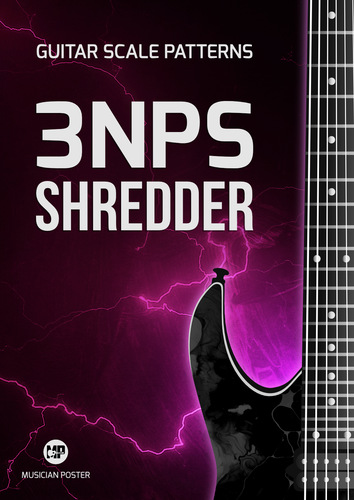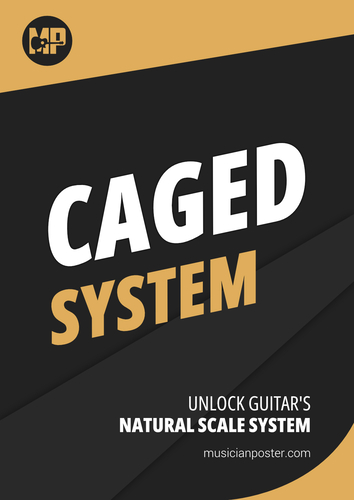Map showing all notes of the Eb-Major scale across the entire fretboard.
The Eb-Major scale consists of the following notes: Eb, F, G, Ab, Bb, C, D.
How You Can Use This Chart
- Visualize and memorize the notes of the Eb-Major scale across the entire fretboard.
- Find different chord voicings, inversions or shapes that fit in the Eb-Major scale.
- Improvise over an Eb-Major backing track by playing any notes from the diagram.
- Break free from playing the scales using the boxed patterns.
- Find convenient patterns to play common arpeggios that are available in the Eb-Major scale.
- Memorize notes of the scale one string at a time.
- Learn the intervallic pattern of whole and half-steps of the scale using one string only.
But you are free and encouraged to come up with other uses as well and share them in the comment section below, I'd be happy to read your ideas. That way you are also sharing your experience with the rest of the community.
Features and Benefits of the Chart
- Note Names. Diagrams have beginner-friendly note names instead of generic intervals and other types of presentation you might not yet be comfortable with.
- Scale Notes: Notes that make up the Eb-Major scale are conveniently placed right above the diagram so that you don't need to look up another reference.
- 12 and 24 Frets: The charts are available in two variations: as 12 frets and as 24 frets.
- Highlighted Roots. Knowing where the root notes are is what differs this scale from any other scale within the same family of scales (i.e. relative modes). So it is very important to be aware of where your roots are and this chart allows you to locate them effortlessly.
- Doubled Frets: Fret numbers are provided both below and above the diagram, offering additional visual cues to pinpoint your location and navigate the fretboard with even greater ease.















0 Comments